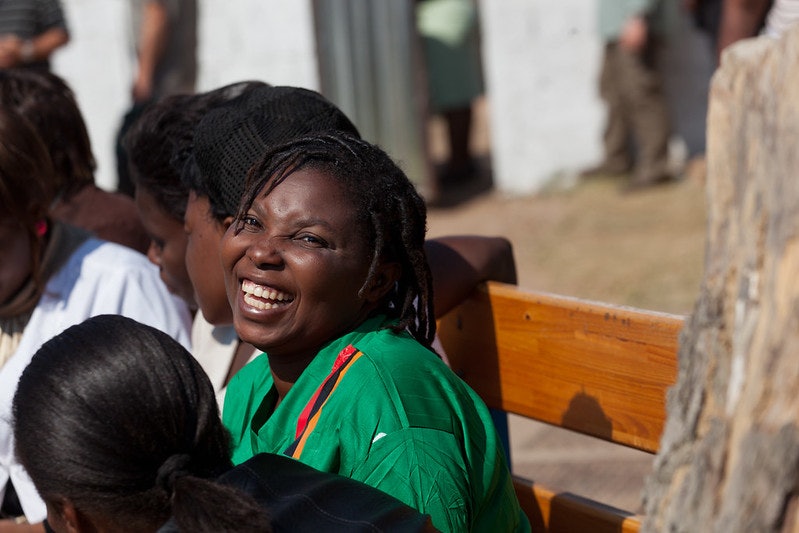This week, PEPFAR was officially reauthorized and signed into law. A “dream big” effort, PEPFAR was built on partnerships and results – a forward-thinking and collaborative approach to foreign assistance by the United States.
This week, the President’s Emergency Plan for AIDS Relief (PEPFAR) was officially reauthorized and signed into law. A “dream big” effort, PEPFAR was built on the ethic of partnership and results – a forward-thinking and collaborative approach to foreign assistance by the United States.
Thanks to grit and innovation, much has changed in the 16 years since the program’s announcement by President George W. Bush during the 2003 State of the Union Address.
Leadership and partnership matter. Political will, community mobilization, and inclusive advocacy are saving lives. Case in point: Namibia.
Earlier this year, the Namibia Population-based HIV Impact Assessment (NAMPHIA) revealed that over the last five years, Namibia has reduced its adult HIV incidence rate by 50 percent. And the country has nearly reached UNAIDS’ ambitious 90-90-90 targets – percentage goals focused on diagnosis of those living with HIV, access to antiretroviral therapy, and viral suppression of those being treated. They have attained 86-91-96 among all adults and surpassed the targets among women with more than a year to go until the 2020 deadline.
As PEPFAR stated earlier this year, Namibia’s timely and “strategic expansion of HIV prevention services, with a focus on viral load suppression at the individual and community level, and the swift implementation of forward-leading HIV policies” have made a significant difference. Demonstrating tremendous political will, the government has increasingly committed its own funding to the pool of resources for AIDS in the country, identifying the highest priorities for greater impact and building on past lessons learned. This includes the strategic leverage of data to drive support to high burden environments.
Africa is home to the world’s largest youth constituencies, and Namibia has among the youngest populations in Africa.
Of the 2.4 million people in Namibia, 15-24 year-olds comprise nearly a quarter of the country’s total population. Though an incredible force for change, high rates of poverty, interpersonal violence, and transmission of HIV significantly limit their potential.
Despite this formidable reality, champions at every level of society have stepped forward to challenge the status quo. For example, in collaboration with formal and informal partners including young people and educators, advocates like Her Excellency Monica Geingos have aided progress. Leveraging the visibility of her platform as both First Lady of Namibia and UNAIDS Special Advocate for Young Women and Adolescent Girls, Madame Geingos and her team have illuminated lines of communication and representation for those whose voices may have previously been overlooked.
The impact has been electric. Campaigns like Be Free and Break Free have disrupted stigma and generational divides on critical issues like violence and sexual health. Focused community events have provided a platform for young people and other vulnerable populations to engage and be heard, and in ways that have influenced action and access to resources on their behalf.
Speaking on her work with young people, Madame Geingos commented: “Influence is happening both ways. Young people influenced me to rethink some of my perceptions and how we should package solutions for young people.” Adding further, “Life is tough as an adolescent and as an adult as well. You need to look past your challenges and focus on how you’re going to remove yourself from negative situations. I think we influence each other.”
An apolitical influencer, the First Lady’s role as a bridge builder has garnered worldwide recognition. In September, Madame Geingos was honored with the Concordia Summit’s 2018 Leadership Award. And in October, she was recognized alongside Sir Bob Geldof with the 2018 World Without AIDS Award.
At every level of society, commitment and collaboration have proven steadfast forces in moving the needle forward in Namibia. From government officials to public figures and grassroots advocates, we all have a role to play in the global fight against HIV/AIDS. As President George W. Bush said during a visit to Namibia in 2017: “Progress has been made. A lot of this resulted from the Namibian government’s willingness to spend money, and good leadership…The good news is, this government understands it.”































